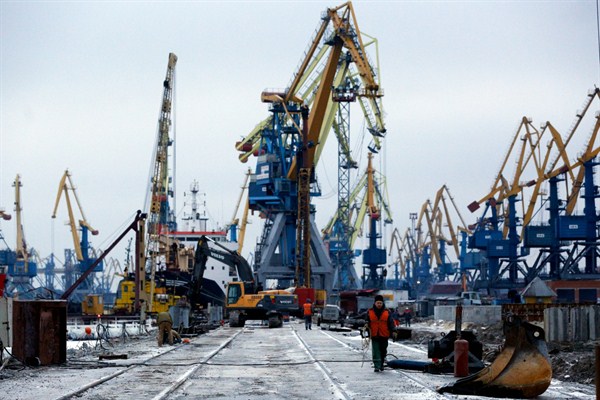The World Trade Organization recently released a decision that it surely would have preferred to avoid. Ukraine had challenged restrictions on its exports imposed by Russia in the wake of its 2014 takeover of Crimea. The Russian government claimed that an exception to international trade rules allowed it alone to decide when trade restrictions are “necessary” for national security reasons. Moscow argued that the WTO should have no role in adjudicating the dispute.
Since the WTO had never previously ruled on the national security justifications for trade restrictions, the Russia-Ukraine case is important in its own right. But lurking behind it is President Donald Trump’s use of a national security rationale to limit imports of steel and aluminum to the United States. The WTO panel accepted Russia’s defense of its trade measures as justified on national security grounds, but it put important conditions on the use of that exception—conditions that Trump’s actions are unlikely to meet. Both Russia and Ukraine accepted the panel’s decision and declined to appeal.
American officials, however, criticized the decision as “seriously flawed,” which signals the battle to come when a WTO panel reviewing the U.S. steel and aluminum tariffs reaches a decision sometime in the next year.

